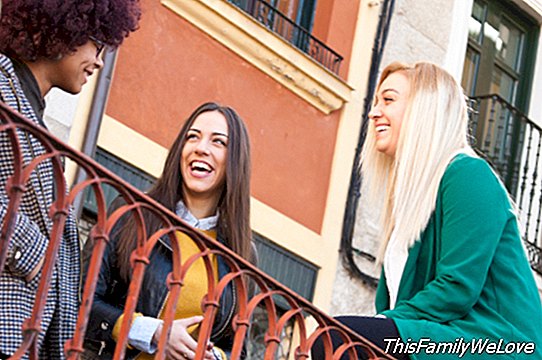The PISA 2018 exam will measure respect for other cultures
Respect is an essential value, necessary in education to achieve successful people capable of taking responsibility. The fact that a child is tolerant today gives us clues that, tomorrow, he will be an integral, responsible and ethical adult. And it is precisely the presence of these values in childhood that the Organization for Economic Cooperation and Development (OECD) wants to measure in its PISA tests of 2018.
Specifically, the Program for the International Student Assessment (PISA) wants to include a new questionnaire during the year 2018 that will measure respect for other cultures. These questions are intended to analyze the attitude of 15-year-old students towards other cultures, the value that they give to human dignity, if they respect others and their level of responsibility.
Responsibility and tolerance, as important as mathematics
So far, the basic variables that measure the various PISA tests were reading ability, mathematics and science. The idea of adding competence related to respect for others emerged in mid-May in a Meeting of Education Ministers of the G7, that is, the United Kingdom, Canada, France, Germany, Italy, the United States and Japan.
"The search for innovative solutions for the escalation of problems, from the depletion of natural resources to a fairer distribution of wealth and opportunities, depends on the ability of people to act creatively and ethically and in collaboration with others. ", pointed out the OECD Cabinet Director Gabriela Ramos, who was in charge of presenting the proposal.
Assessing global competition is the objective of the OECD
In this way, the objective of the OECD is to evaluate the 'global competence' of 15-year-old students. This is, according to Ramos, the "centerpiece" of a broader vision that must encompass 21st century education, which must be shaped by three principles: equity, cohesion and sustainability.
In this regard, the Director of Education and Training of the OECD, Andras Scheleicher, points out that schools "have to prepare students for a world in which people need to work with others of diverse cultural origins and appreciate ideas, perspectives and values different from yours ". That is, to be able to work in an increasingly global environment.
In essence, it is expected that young people around the world are increasingly immersed in multinational environments. "His life will be affected by issues that go beyond national borders," says Scheleicher in the document Global competition in an inclusive world. For this reason, it is necessary that young people develop greater confidence in people of other cultures, because they will have to collaborate with them.

If this new questionnaire is approved in PISA, it could help answer if 15-year-old students are prepared for life and employment in a globalized world. It will also allow knowing if children have the capacity to understand and analyze news and culturally different issues; if schools educate their students in this multiculturalism and what methods they use; or how stereotypes and cultural and gender prejudices are faced in educational centers.
How can this be measured? The OECD proposal establishes that several cognitive components of the student are evaluated: critical thinking analysis, the ability to interact with respect, empathy, knowledge and understanding of global problems or intercultural knowledge, to mention a few. .
What happens with the teachers?
The education that young people receive in classes is essential. That is why students must be in good hands: people who can transmit those values that we talk so much about. Therefore, the OECD also plans to know the capacity of teachers to respond to the different student communities and their teaching strategies in this field.
To this end, this international organization has thought about measuring this same "global competence" within the International Study of Teaching and Learning (TALIS), a kind of PISA test that is done to teachers around the world.
Damián Montero




